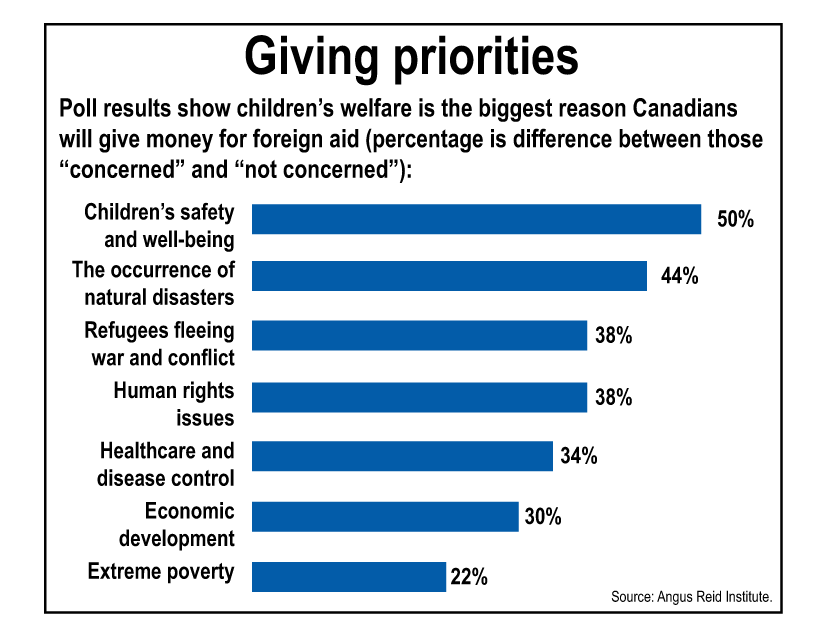The study shows religiously engaged Canadians are the most likely to give to charities serving overseas communities. Church-going Canadians are also the most likely to be engaged on issues of global poverty and development.
The trouble is that only 21 per cent of Canadians actually give any money at all to development charities and most of us don’t have any idea how badly the Canadian government does in meeting its aid obligations.
Nearly half — 43 per cent of Canadians — say their personal faith strongly influences their view of charitable giving. Among those who follow and care about development issues 33 per cent are regular church goers, with another 38 per cent who may not make it to church every Sunday but say they take their faith seriously.
Canadians think about aid to poor countries in moral terms and two-thirds say Canada has a moral obligation to help, according to the Angus Reid study.
Development and Peace executive director Serge Langlois counts on Catholic social teaching and the moral reflexes of Catholics whenever the Canadian arm of Caritas International goes looking for money or signatures on petitions.
“The richness of Catholic social teaching means that many of our supporters already understand and value the importance of solidarity and international social justice work,” Langlois told The Catholic Register in an e-mail. “What we have also noticed through our programs in schools and universities is that young people want to engage with Development and Peace precisely because we work on the structural issues of poverty.”

But outside of the classrooms in Catholic schools and universities, there may be a problem of perception. The survey said only 26 per cent know that Canada doesn’t meet its obligation to dedicate 0.7 per cent of Canada’s gross national income to development aid. Almost one in six erroneously believe Canada exceeds the United Nations goal in place since Canada proposed it in 1970.
Development and Peace has for years been trumpeting the fact that while six countries do meet or exceed the 0.7 per cent target, Canada ranks 13th out of 19 donor countries in terms of official aid.
“We all try to impart to Canadians the need to live up to our global responsibility towards countries in the global south whose resources we benefit from,” Langlois said. “We welcomed the news that the government is increasing the ODA (official development aid) budget and we will continue to ask that they do more.”
Canadians’ giving habits don’t line up with their feelings on the issue of aid. Nearly three-quarters (72 per cent) say they take great pride in Canadian development work abroad, but only 21 per cent are willing to part with their own money, the study showed.


